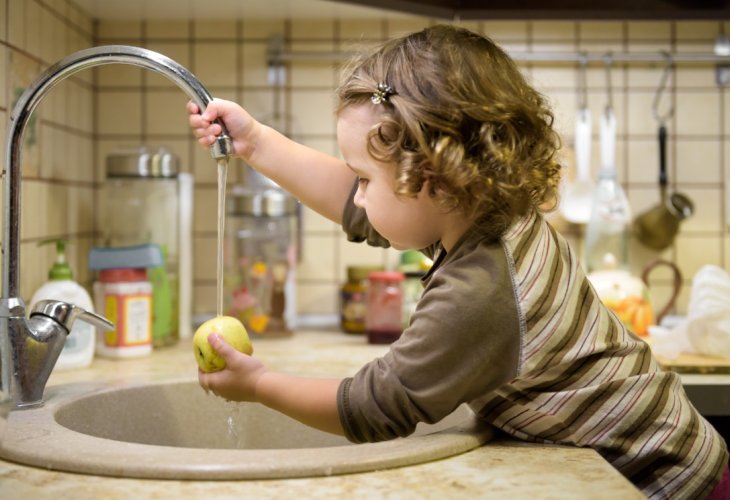The Most Effective Way to Wash Fruits: Will You Change Your Habits Today?
What is the best method to remove pesticides from fruits? A team of researchers has shown that our current washing practices need improvement. How should we wash fruit according to their findings, and what happens if we stick to our current routine?
 (Photo: shutterstock)
(Photo: shutterstock)How do you wash your fruits? Are you among those who do the bare minimum (just water), or are you more thorough (adding a bit of soap)? According to a study conducted at a university, these habits are deemed less effective in removing pesticides from fruit.
In the study, published in the journal Agricultural and Food Chemistry, a team of researchers examined three methods for cleaning apples to determine the most effective way to remove pesticide residues.
The findings revealed that washing an apple under tap water or using soap is not sufficient, and the most effective method is washing the fruit with baking soda.
It's worth noting that before you raise an eyebrow, be aware that apples undergo a pesticide removal process, including the use of bleach, on their way to your refrigerator. However, according to the researchers, this process is not entirely effective as residues of harmful substances can still adhere to the fruit. The purpose of the research was simply to propose an additional method not yet widely accepted by the public for consuming fruits free of harmful substances.
Should We Be Concerned About Pesticide Residues?
The recommended way to clean fruits, according to the research editors, is to mix water and baking soda in a container and place the apple in it. The study showed that all pesticide residues were removed after a few minutes.
According to some experts, the cleaning and disinfection processes fruits undergo before consumption ensure that the remaining levels of pesticides are minimal and not harmful. However, some researchers warn that long-term exposure to even reduced levels of pesticide residues might have health effects.
"Products are tested to ensure that pesticide residues are below levels dangerous to humans," said Dr. Motoko Mukai, a toxicologist from Cornell University, in a conversation with CNN.
And what if you are still worried about pesticide residues? Dr. Mukai suggests that simply removing the peel can be an option, though the downside is missing out on some of the apple's health benefits, including dietary fibers and 72% of its antioxidants and vitamins E and K.

